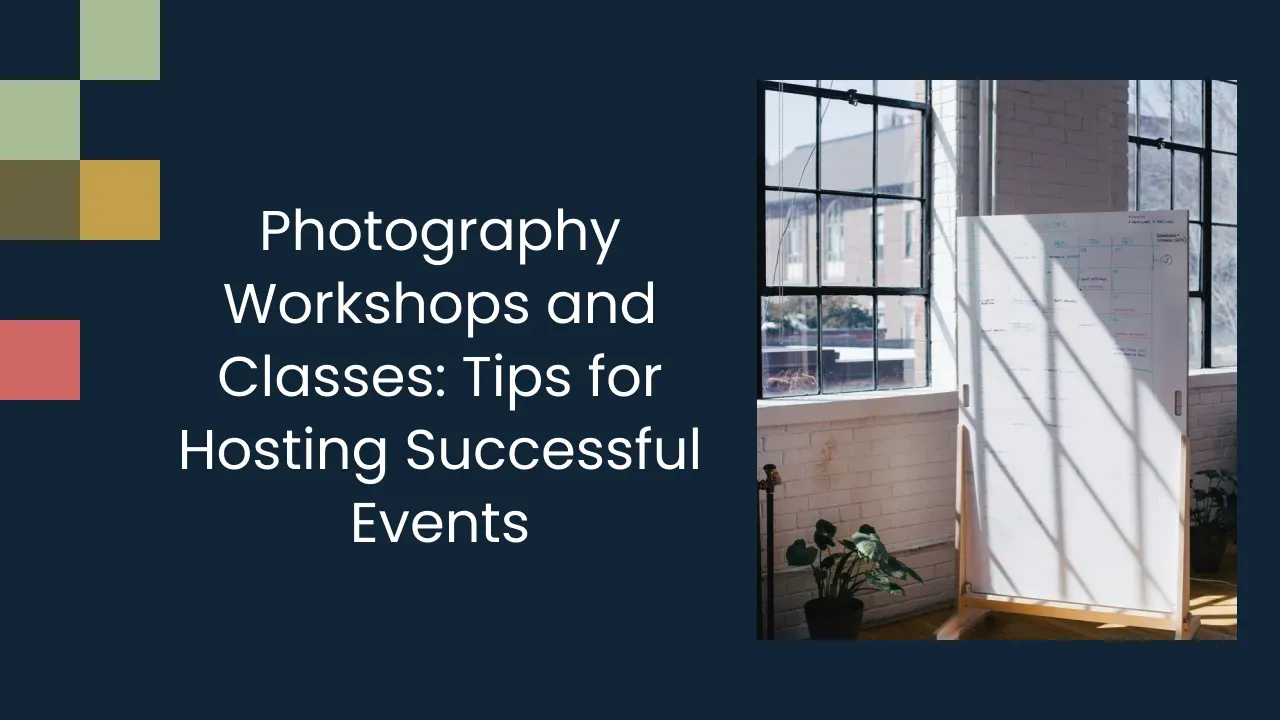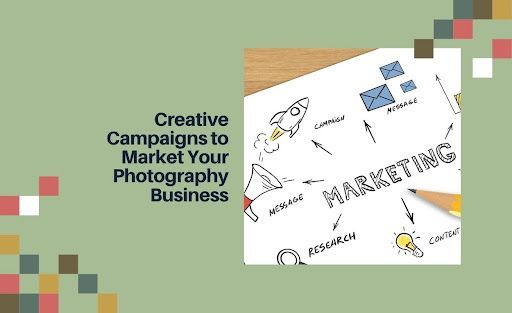Photography Workshops and Classes: Tips for Hosting Successful Events

Photography workshops and classes are an excellent way to share your knowledge and expertise with others who share a passion for photography. Whether you are an experienced photographer looking to offer your services or a photography enthusiast interested in hosting a workshop, there are several key factors to consider to ensure the success of your event.
Understanding the Basics of Photography Workshops and Classes
Before diving into the planning process, it's essential to have a clear understanding of what photography workshops and classes entail. Photography workshops are typically short-term events, often lasting a day or a weekend, where participants gather to learn specific photography techniques or explore particular genres. On the other hand, photography classes are more comprehensive and can span several weeks or months, covering a range of topics in-depth.
Photography workshops and classes offer a unique opportunity for individuals to immerse themselves in the world of photography. These learning experiences go beyond just technical skills and camera settings; they also delve into the artistry and creativity that make a photograph truly captivating. Participants not only learn from instructors but also from each other, creating a collaborative and inspiring environment.
Defining Photography Workshops and Classes
Photography workshops and classes are educational opportunities that bring together photography enthusiasts at various skill levels to learn from experienced professionals. These events provide an environment where participants can enhance their photography skills, gain inspiration, and network with like-minded individuals.
One of the key benefits of photography workshops and classes is the hands-on learning they offer. Participants have the chance to practice new techniques in real-time, receiving immediate feedback from instructors and peers. This interactive approach accelerates the learning process and allows individuals to see tangible improvements in their work throughout the duration of the workshop or class.
The Importance of Photography Workshops and Classes
Photography workshops and classes play a vital role in individual growth and development. They offer a structured learning environment where participants can engage in hands-on activities, receive personalized feedback, and build a strong foundation of technical knowledge and artistic vision. Such experiences can greatly enhance a photographer's portfolio and overall skillset.
Furthermore, photography workshops and classes often feature guest speakers, portfolio reviews, and field trips to provide a well-rounded educational experience. These additional components expose participants to different perspectives and styles, broadening their understanding of photography as an art form. By immersing themselves in these diverse learning opportunities, photographers can refine their personal style and expand their creative horizons.
Planning Your Photography Workshop or Class
Once you have a clear understanding of photography workshops and classes, it's time to start planning your own event. Effective planning is key to hosting a successful workshop that meets the needs and expectations of your participants.
When embarking on the journey of organizing a photography workshop or class, it's essential to delve deeper into the intricacies that make such events truly memorable and impactful. By focusing on the finer details, you can elevate the overall experience for your participants and create a lasting impression that resonates with their passion for photography.
Setting Clear Objectives for Your Event
Before delving into the logistics, it's important to define the objectives of your workshop or class. Consider what specific skills or topics you want to cover and what outcomes you hope to achieve for your participants. Clearly outlining these objectives will guide your planning process and ensure a focused and impactful event.
Delving into the core objectives of your photography workshop or class allows you to craft a roadmap for success. By establishing clear goals, you pave the way for a structured and purposeful event that caters to the diverse needs and aspirations of your attendees. Whether aiming to enhance technical skills, foster creativity, or explore niche photography genres, aligning your objectives with the participants' expectations is paramount to curating a rewarding experience.
Choosing the Right Venue
Your choice of venue can greatly impact the overall experience of your workshop or class. Look for a location that provides ample space for practical activities and comfortable seating arrangements for lectures and discussions. Additionally, consider the accessibility of the venue, ensuring it is easily reachable by participants.
When selecting the perfect venue for your photography workshop or class, envision a space that not only accommodates the logistical requirements but also cultivates an atmosphere conducive to learning and creativity. The ambiance of the venue plays a pivotal role in shaping the participants' engagement and enthusiasm throughout the event. Whether opting for a serene natural setting to inspire outdoor shoots or a contemporary studio space equipped with state-of-the-art technology, the venue sets the stage for an immersive and enriching experience.
Deciding on the Workshop or Class Format
There are various formats to consider when planning your photography workshop or class. Will it be a one-day intensive workshop or a series of weekly sessions? Will there be guest speakers or hands-on shooting opportunities? Tailor the format to align with your objectives and participants' needs.
Exploring the myriad possibilities of workshop formats opens doors to innovative and engaging learning experiences for photography enthusiasts. Whether opting for a dynamic blend of theoretical insights and practical exercises in a full-day workshop or fostering a sense of community and continuous learning through a structured series of sessions, the format you choose shapes the dynamics of interaction and knowledge exchange. By customizing the workshop format to cater to diverse learning preferences and schedules, you create a versatile platform that resonates with the unique interests and aspirations of your audience.
Preparing the Workshop or Class Content
Once you have your planning in place, it's time to focus on creating the content that will be taught during the workshop or class. Designing a comprehensive curriculum is essential to ensure a structured and well-paced learning experience. The content you prepare will serve as the foundation upon which participants will build their knowledge and skills in the subject matter.
When crafting the content, consider incorporating a variety of teaching methods to cater to different learning styles. Some participants may learn best through visual aids, while others may prefer hands-on activities. By diversifying your teaching approach, you can create an engaging and enriching learning environment for all attendees.
Determining the Skill Level of Your Participants
It is crucial to assess the skill levels of your participants beforehand to cater the content accordingly. Consider offering beginner, intermediate, and advanced levels to accommodate individuals with varying experience. This approach will ensure that everyone gets the most out of the workshop or class. Additionally, conducting pre-workshop assessments or surveys can help you tailor the content to meet the specific needs and expectations of the participants.
Creating a Comprehensive Curriculum
When developing your curriculum, aim for a balance between theory and practical exercises. Cover both technical aspects like exposure and composition, as well as artistic considerations such as storytelling and visual aesthetics. Structure the topics logically to build upon previous concepts and allow participants to progressively enhance their skills. By providing a well-rounded curriculum, you can offer a holistic learning experience that addresses both the technical and creative aspects of the subject matter.
Incorporating Practical Sessions
The inclusion of hands-on shooting opportunities is essential for participants to apply the theory they learn. Organize practical sessions throughout the workshop or class, allowing participants to practice new techniques and receive real-time feedback from instructors and peers. This interactive learning approach not only reinforces theoretical concepts but also fosters a collaborative and supportive learning environment. Encouraging participants to actively engage in practical sessions can lead to a deeper understanding of the material and a more meaningful learning experience.
Promoting Your Photography Workshop or Class
After putting in the effort to plan and create your workshop or class, it's crucial to effectively promote your event to attract participants. Utilize various promotional strategies to ensure maximum reach and visibility.
One effective way to promote your photography workshop or class is by harnessing the power of social media. Platforms like Instagram, Facebook, and Twitter offer a vast audience that you can tap into. Create visually compelling content that showcases the unique aspects of your workshop or class. Share images from past workshops, highlighting the learning experience and the beautiful moments captured by participants. Additionally, consider sharing testimonials from previous participants, as their positive feedback can serve as a powerful endorsement.
Engagement is key when using social media for promotion. Take the time to interact with your audience by responding to comments and answering questions. This not only helps build a connection with potential participants but also generates excitement and interest in your event. Regularly provide updates about the workshop or class, such as new topics that will be covered or any special guest speakers. By keeping your audience informed and engaged, you can create a buzz that will attract more participants.
Leveraging Photography Networks and Communities
While social media is a valuable tool, don't overlook the power of photography networks and online communities. Joining relevant photography forums or groups where your target audience is present can help you reach a highly engaged and passionate community of photographers. Participate in discussions, offer valuable insights and advice, and share information about your workshop or class. By establishing yourself as a knowledgeable and helpful member of these communities, you can build trust and credibility, which can lead to word-of-mouth referrals.
Word-of-mouth referrals within photography networks and communities can be incredibly powerful. When photographers who have attended your workshop or class share their positive experiences with their peers, it creates a ripple effect that can lead to a steady stream of interested participants. Encourage your past participants to share their thoughts and experiences on these platforms, and consider offering incentives, such as referral discounts, to further motivate them to spread the word.
Offering Early Bird Discounts and Incentives
Creating a sense of urgency and enticing potential participants to take action is another effective promotional strategy. One way to achieve this is by offering early bird discounts or limited-time incentives. By providing a reduced rate or special bonuses for those who sign up early, you create a sense of exclusivity and value. This can motivate undecided individuals to make a decision and secure their spot at your workshop or class before it fills up.
When offering early bird discounts or incentives, clearly communicate the benefits participants will receive. Highlight the skills they will learn, the networking opportunities available, or any additional resources they will gain access to. By emphasizing the value they will receive, you make it more compelling for them to take advantage of the offer.
By following these tips for hosting successful photography workshops and classes, you can create a valuable learning experience for participants and establish yourself as a trusted and knowledgeable resource in the photography community. Remember to continuously evaluate and improve your events based on participant feedback and strive to provide outstanding value and inspiration.
More from Pixifi











